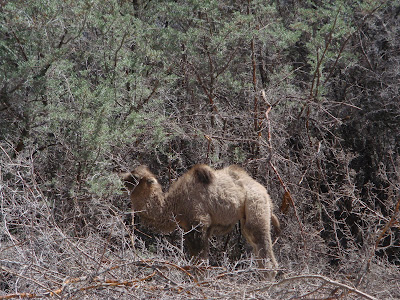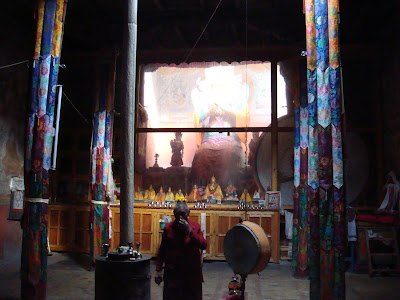
He loved green turtles and hawk-bills with their elegance and speed and their great value and he had a friendly contempt for the huge stupid logger heads, yellow in their armour plating, strange in their love-making, and happily eating the Portuguese men of war with their eyes shut.
He had no mysticism about turtles although he had gone in turtle boats for many years. He was sorry for them all, even the great trunk-backs that were as long as the skiff and weighed a ton. Most people are heartless about turtles because a turtle’s heart will beat for hours after he has been cut up and butchered.
It s a fable – of an old man, a young boy, the fish and the sea. 99 pages. It won the Nobel prize for literature.
By the time I picked up this book, I had read the nobel prize winning Outsider by Albert Camus. Disappointed and clueless, I had been.
So this one, I picked up without expecting to be blown away.
Your experience is so much better in the absence of high expectation.
There lived an old man in a coastal village who had set his heart on catching a big fish. He decided to venture into the sea all alone, unlike before when the small boy, who had become his friend, had accompanied him.
He set out hoping to be able to find the prize not very far away and soon enough. But once the sailing begins, he continues to sail, a little further, a little more into the heart of the sea, in the hope of finding his prize.
He is aware (and may be apprehensive) of the fact that he is all alone and there is no other boat in sight, that he is an old man with no one to help him and that the sea always has its share of dangers to offer.
All the same he is courageous and not deterred by his position.
He ventures really far, until the shore is completely out of sight and it’s just him and the sea. The reader gets a perspective of how life takes on a new meaning when a man has been exposed to elements and has to deal with them all alone.
The story gets absorbing as the old man steers, guided by his knowledge and familiarity with the sea and its ways, its children and their language, the winds, the colour of the sky and what they communicate to man.
There is the subtle suspense of what awaits the old man, just as there is suspense in the most banal of lives.
After days of sailing and stumbling upon the smaller fish that tug at his fishing line, he feels the pull of a strong force at the end of the line that is deep below the surface. His mind tells him it’s a very big fish and he is happy at last for having caught it. But his odyssey is not over yet. He has to wait for days before his prey will surrender before him.
The patient waiting finally bears fruit. The big fish comes to the surface and gives up after a struggle.
The old man ties it alongside his boat as the fish is really big and will not fit inside the boat. His return journey begins.
But as he sails, time after time, the other fish in the sea, that have by now tasted and smelled the blood of the big one, come to the surface and bite into its flesh. The old man struggles to ward them off, kill them even - with the apparatus he has in possession. Every time the predators attack his prize he hopes that there will still be enough left when he returns.
Finally. when he returns to the shore, only the skeleton of the fish and the useless head and tail remain.
There ends the story.
The narration is very matter-of-factly, although there is scope, at least in the end, for theorizing and moralizing. It is not very descriptive nor dramatic although there is much scope for drama, what with the sea and its depths full of dangers.
The book is a perspective presented to the reader. The book is a glimpse of a different world as seen when you step into the shoes of another - an old fisherman – what life means to him, the realm he lives in, what he dreams about and what he hopes for, what his life is all about.
The book has conjured or created an environment that makes perceptible the suspense that lies in the banality of life. Rather, it’s the portraying of a situation in the life of a most ordinary man in such a manner as makes perceptible to the reader, the suspense that lies in the banality of life.
The point of the story is not really explicit. The below though is what I could make of it.
Futility of life – All our endeavours amount to nothing in the end sometimes. Life is full of uncertainty. Often we are helpless before unexpected forces that bring to naught what we have earned. But that’s life. Rather, that is life too.
At times in life, having found success in a direction, we take some more risk, a little more, just a little more hoping to find the bigger and the better, with the unfounded assurance that disasters always happen in others’ life. Until… we have lost even what we had.
What I loved about the book most...
The story is a realistic representation of life in the face of all the clutter of incorrigible optimism and delusion - the promise of the fruit of hard work, the guarantee of the power of positive thinking, the theory of the whole universe conspiring to help one man achieve what he wants, the vote for free will against destiny, the false assurance that ‘its all in your hands‘ and the frequent allusion to the brighter side of life.
It’s a representation of the fact that life sometimes is unfair. And it offers no explanation. At times, there is simply no brighter side to it.






























































